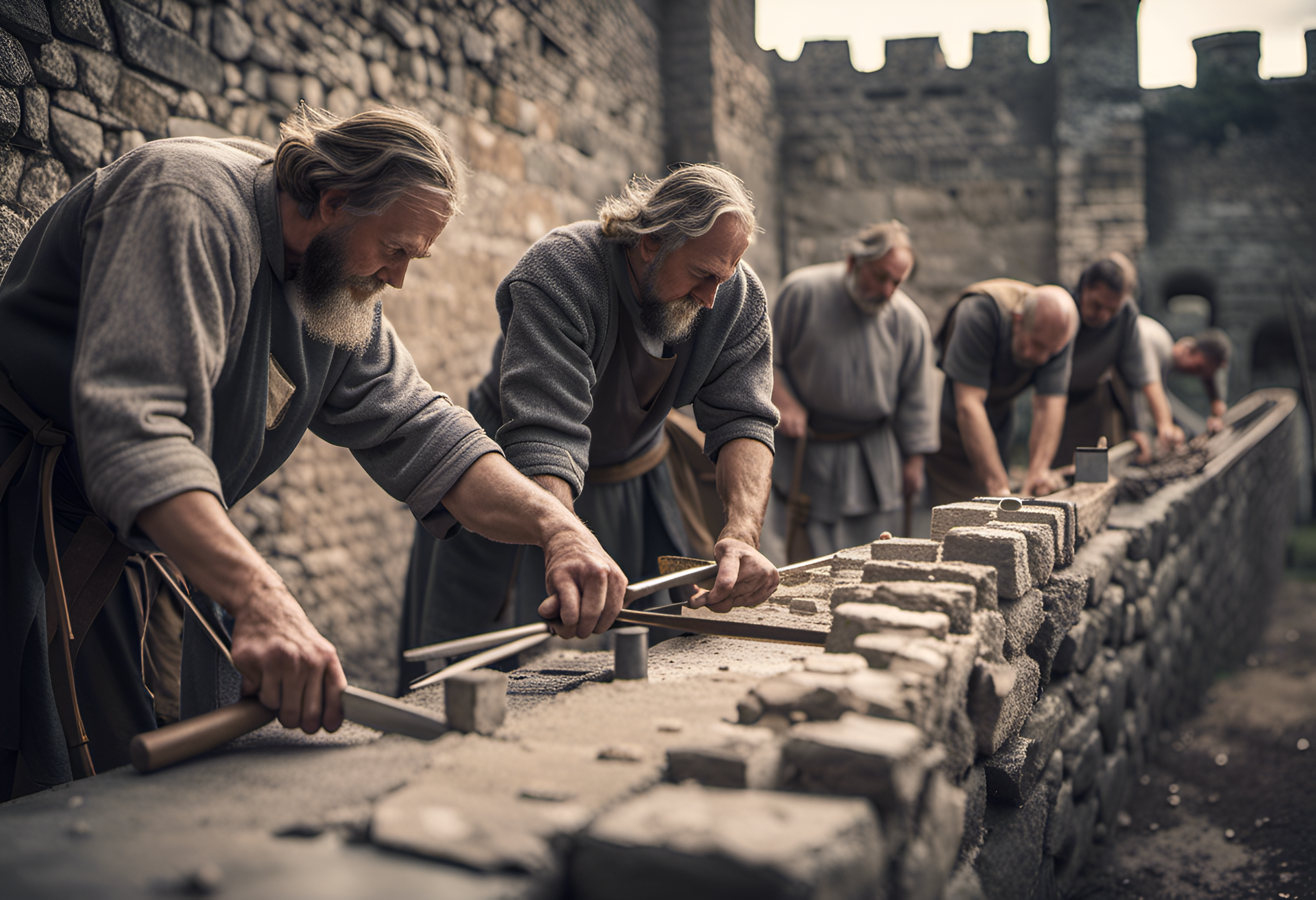List of individual benefactors and their donations to Rochester Cathedral, recorded c.1123
Translation from Latin of Textus Roffensis, folios 182v-186v by Jacob Scott (pending review).
List of Royal Donations to Rochester Cathedral from 604 to the reign of William II, recorded c.1123
Translation from Latin of Textus Roffensis, folios 215r-216r by Jacob Scott (pending review).
List of various donors and their gifts to Rochester Cathedral and Priory, recorded c.1123
Translation from Latin of Textus Roffensis, folios 201r-202v by Jacob Scott (pending review).
Offices and masses for monastic houses in confraternity with St Andrew’s Priory, Rochester, c.1123
Translation from Latin of Textus Roffensis, folios 222r-223v by Jacob Scott (pending review).
Records of Knights/Soldiers of the Rochester episcopate, c.1340
Translation from Latin of Textus Roffensis, folios 217r by Jacob Scott (pending review).
Agreement with Geldewine the moneyer concerning land at Rochester, 1115-1124
An agreement made between Geldewine the moneyer and Bishop Ernulf and the monks at St Andrews concerning land at Rochester (1115-1124). Translation from Latin of Textus Roffensis, folio 193r by Jacob Scott (pending review).
Agreement with Coc concerning land in Rochester
An agreement made between Coc and Bishop Ernulf and the monks at St Andrew’s concerning land in Rochester (1115-1124). Translation from Latin of Textus Roffensis, folio 192v by Jacob Scott (pending review).
Agreement between the reeve of Frindsbury and the citizens of Rochester
An agreement made between the reeve of Frindsbury and the citizens of Rochester, commuting the customary payment of malt and meal for a rent of six pence from each property (possibly later than 1115). Translation from Latin of Textus Roffensis, folio 193v by Jacob Scott (pending review).
List of grants to Rochester Cathedral from the foundation to Henry I
List of grants to St Andrew’s Church at Rochester, from the time of the foundation by King Æthelberht to Henry I, 604-1100. Translation from Latin of Textus Roffensis, folio 177r-178r by Jacob Scott (pending review).
Henry de Port grants gifts as alms to St Andrews’s, Rochester, 1108
Henry de Port grants financial gifts to the almshouse at St Andrew’s, Rochester, 1108. Translation from Latin of Textus Roffensis, folio 198v by Jacob Scott (pending review).
Godric of the Delce grants an annual tithing
Translation from Latin of Textus Roffensis, folio 192v by Jacob Scott (pending review).
Henry I's commemoration of the feast of St Paulinus
Translation from Latin of Textus Roffensis, folio 187v by Jacob Scott (pending review).
Agreement with Stephan Bidel concerning tithing
Translation from Latin of Textus Roffensis, folio 232r by Jacob Scott (pending review).
Agreement between Bishop Gundulf and Gilbert concerning land belonging to St Andrew’s, 1086-1088
An agreement, made in the presence of Lanfranc, between Gundulf and Gilbert concerning land held by Gilbert belonging to St Andrew’s Church (1086-1088). Translation from Latin of Textus Roffensis, folio 175r by Jacob Scott.
Sulungs of the manor of the monks and bishop c.1235
Translation from Latin of Custumale Roffense, folios 10r-10v by Jacob Scott (pending review).
Bishop Gundulf builds Rochester Castle for the king in return for the manor of Haddenhamc.1108-c.1114 AD
William II confirms Archbishop Lanfranc’s grant of Haddenham, Buckinghamshire, to St Andrew’s Priory, Rochester, for which in return Bishop Gundulf builds Rochester Castle. From Textus Roffensis, folios 173r-174v; edited and translated by Dr Christopher Monk, 2022.
Election of Avice as the first Abbess of Malling, b.1180
Transcription and translation of Textus Roffensis, folios 198r-198v by Dr Christopher Monk.
Rochester Priory Library list, c.1123
The catalogue of the library of the priory of St Andrew. Transcription and translation of Textus Roffensis, folios 224r-230r by Jacob Scott (pending review). Introduction by Beverley Dee Jacobs.
Payments of Romescot, c.1235
A list of the payments of Romescot, an annual contribution to the Roman see due from various southern English cathedrals. Translation from Latin of Custumale Roffense, c.1235, folio 27r by Jacob Scott with notes by Dr Christopher Monk.
Tags
- Accounts
- Adisham
- Alkham
- Ash-next-Ridley
- Ashford
- Aylesford
- Bekesbourne
- Betteshanger
- Biddenden
- Brenzett
- Bromhey
- Bromley
- Canterbury
- Capel
- Chalk
- Charing
- Charters
- Chatham
- Chelsfield
- Cliffe
- Cooling
- Cranbrook
- Custumale Roffense
- Cuxton
- Dartford
- Deal
- Dover
- Eastbridge
- Eastry
- Faversham
- Fawkham
- Feet of Fines
- Folkestone
- Food
- Frindsbury
- Gillingham
- Goudhurst
- Gravesend
- Haddenham
- Hadlow
- Harbledown
- Hawkhurst
- Hawkinge
- Higham
- Hoath
- Hoo
- Horton Kirby
- Hythe
- Ifield
- Inscriptions
- Ivychurch
- Lamberhurst
- Laws
- Lewisham
- Littlebourne
- Lydd
- Lyminge
- Maidstone
- Medicine
- Medieval
- Military History
- Modern
- Monasticism
- Monumental Inscriptions
- Newenden
- North West Kent Family History Society
- Northfleet
- Orlestone
- Preston near Wingham
- Rainham
- Ramsgate
- Records
- Ringwould
- Rochester
- Rochester Cathedral
- Saltwood
- Sandwich
- Shipbourne
- Shoreham
- Sittingbourne
- Snargate
- Snave
- Snodland
- Snodland Historical Society
- Stansted
- Stoke
- Stone in Oxney
- Stourmouth
- Stowting
- Strood
- Sturry
- Surveys
- Tenterden
- Textus Roffensis
- Tithe Commutation Surveys
- Tonbridge
- Westwell
- Wills
- Woolwich
- Wouldham












